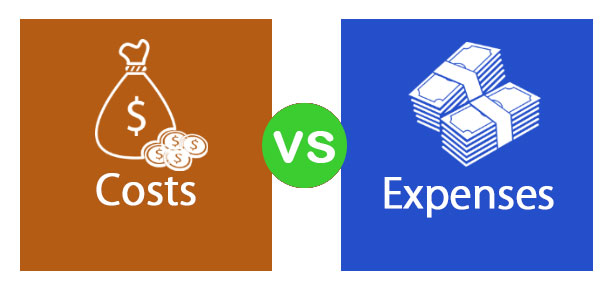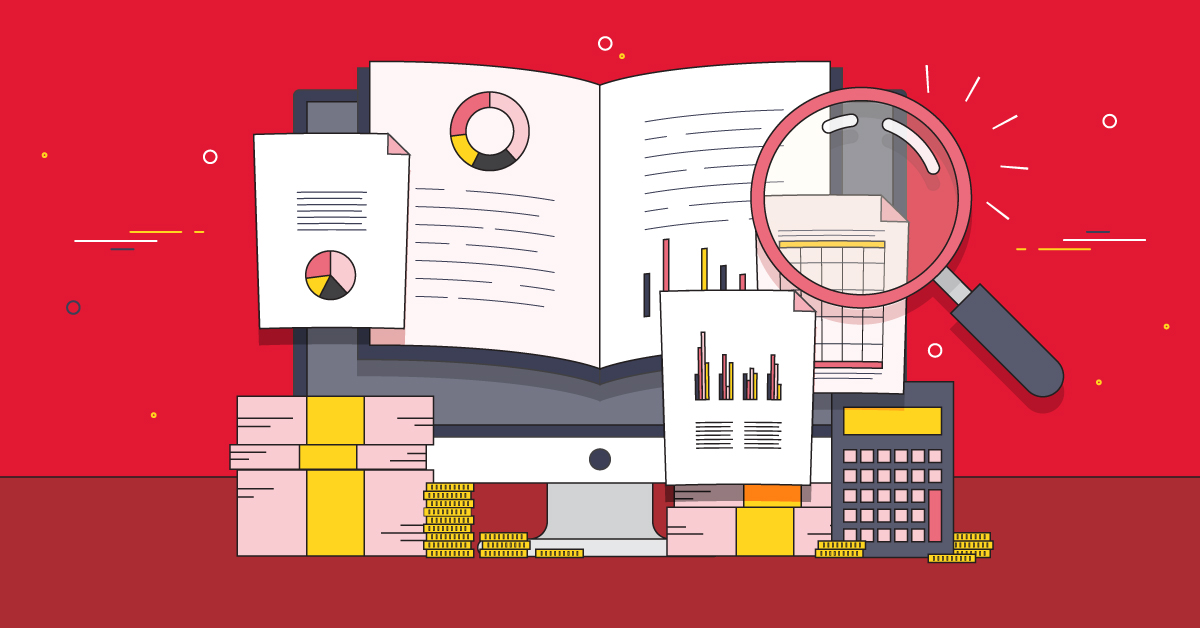Have you ever heard the saying "You have to spend money to make money"?
For a business to run smoothly and efficiently, money must be spent. However, this does not mean that you should let business expenses "fly everywhere" out of control.
Typically, many businesses track expenses monthly instead of daily. At the end of the month, when seeing the total amount spent, businesses begin to cut budgets for the following months. So which accounts should be kept and which accounts should be cut?
This is a dilemma that many business owners often encounter. Few people notice that the secret to cutting costs and... cost control is to approach them every day. In this article, we'll explore ways businesses can do just that to control business costs more effectively.
First of all, let's learn the difference between Expense and Cost!
Difference between Expense and Cost
Outside of business, the terms expense and cost can be used interchangeably. Although both describe the amount of money spent, distinguishing between them is important to ensure proper management of business finances.
If you buy a printer costing 2,150,000 VND for your company, this can be considered a cost. It is a one-time payment to purchase fixed assets for long-term use. Therefore, purchasing land, buildings or equipment for a business is a cost.
On the other hand, expense is the amount of money you regularly spend to run your business. This includes rent, utilities, taxes, salaries, repairs and maintenance, etc. Although these business expenses fall into many different categories, they are all important to a business's ability to make a profit. . They also directly affect the extent to which revenues or profits exceed the costs and expenses associated with running a business.

Spending and expenses can vary, however, together they help you determine how much it costs to run your business financially.
Understand your business expenses – business expense
Depending on the type and size of the business, costs can be more or less. These costs can be fixed or variable. As a business owner, understanding these costs is essential to managing them more effectively.
Identify types of business expenses every day
- The variable costs: These are costs that fluctuate depending on the business. They change based on the quantity of goods or services you produce. If a business's production volume increases, variable costs also increase. But if production volume decreases, variable costs also decrease.
So, if you find a product line unsatisfactory or outdated, you can choose to discontinue production of that product line. These product-related costs are called discretionary costs, which we will delve into in the following section. Examples of variable costs are raw materials, inventory purchases, marketing campaigns, travel expenses, commissions, etc. To calculate variable costs, simply multiply the quantity of output by the cost variable costs per unit of product.
Let's consider: Suppose you own a bakery and the cost to make each loaf of bread is 1000 VND. If you make 500 rolls, your variable costs will be 500,000 VND. However, if your bakery is closed for a holiday and you don't make any loaves of bread, you won't incur variable costs for baking.
Similarly, if you have a large order and have to make 2,000 loaves of bread, your variable costs will increase to 2,000,000 VND. It is important to realize that variable costs vary across industries. Therefore, comparing the variable costs of a bakery with a garment factory is not reasonable due to the difference in output products.
- Fixed costs: These are costs that don't change — you pay a specific amount at regular intervals. Unlike variable costs, fixed costs do not change in price and payment frequency. They are also inevitable. You pay them whether or not you produce goods or services and regardless of the volume of production.
The most common examples of fixed costs include rent, utilities, salaries, insurance, etc. Using the same example from above, let's say your bakery has fixed costs of VND 2,000,000 to rent machines. baking. If your company doesn't make any loaves of bread that month, you still have to pay 2,000,000 VND to rent the machine. Conversely, if you make 1,000 loaves of bread, your fixed costs remain the same.
Meanwhile, with this example, variable costs vary from 0 to 1,000,000 VND. Even though fixed costs are relatively stable, they still need to be factored into your budget.
- Discretionary expenses: As the name suggests, the cost will be based on discretion. They are optional expenses that are not required for the operation of the business but can contribute to its growth and/or efficiency. So, if necessary, your business can survive without discretionary expenses.
Examples of discretionary expenses include training programs, professional development courses, employee benefits, office parties and other entertainment expenses. While discretionary costs can add value, they need to be thoroughly evaluated to ensure they align with the business's goals. Typically, your business should cover discretionary expenses with the amount of money left over after paying rent, utilities, materials, etc.— fixed and variable expenses.
Areas where businesses overspend
Businesses need to strictly control spending to ensure operational efficiency and profits. However, many businesses often overspend in some of the following areas:
- General costs: These are costs associated with running your business but do not directly contribute to the production of products or services – also known as discretionary costs. Businesses often overspend on these overhead costs, such as office rent, utilities, and maintenance. These costs can quickly become a burden on your revenue if not controlled properly. That's why it's important to consider ways to reduce these costs, such as outsourcing, reviewing overheads regularly, rethinking software updates, or considering work-from-home options. distant.
- Non-essential purchases: Impulse shopping isn't just a matter of personal finances. These unnecessary purchases can also affect your business's finances and quickly eat away at your budget. You can limit this by encouraging employees to get approval before making non-essential purchases and establishing clear guidelines and policies on spending limits.
Bizzi Card business credit card is a comprehensive solution for unnecessary purchases. You can disburse funds employees need to cover business expenses and set spending limits at your discretion to ensure transparency and proper use.

- Ineffective process: Inefficient and outdated workflows can lead to wasted time and resources. This can cost your business more than you think, so it's important to carry out regular audits of your business operations to identify areas for improvement and streamline processes to reduce expense.
- Excess inventory: While it's good to always have goods on hand, over-stocking can tie up your capital more than necessary. Therefore, implementing an inventory management system to accurately track inventory levels, predict demand more effectively, and minimize excess inventory is important to cut business costs.
How to control business expenses every day
Set a budget
Budgets are powerful tools for managing business costs and controlling spending, especially in the current economic climate. It provides a roadmap to help you understand how much money your business has and how much is spent. With this knowledge, you can plan what each dollar will be spent to achieve and how much will be left in your business budget afterward.
Tips for setting realistic spending limits
Setting realistic and feasible spending limits is essential to ensure that your business stays within financial means and avoids financial stress. Here are some practical tips for setting spending limits:
- Review past spending: Review past financial records to identify spending patterns and find areas where adjustments can be made.
- Cost priority: Allocate your budget to essential expenses like salaries, utilities, and inventory before considering discretionary spending.
- Set specific goals: Establish specific financial goals and targets to guide budget decisions and track progress over time.
- Flexible: Realize that budgets may need to be adjusted periodically to accommodate changing business needs and market conditions.
Track costs closely
Thanks to the digital age, tracking business expenses has moved beyond using paper and pen— and now to excel spreadsheets. Instead, the use of software solutions such as Bizzi Expense is recommended. This tool offers features like real-time expense tracking and automated reporting, making it easier than ever to track your business's expenses.
By leveraging these tools, businesses can streamline processes cost management, reduce manual errors and gain valuable information about their financial situation.

Cost Analysis
This allows you to spot patterns, anomalies, and categories where improvements can be made in business expenses. By reviewing past data, you gain insight into your business's spending habits, identifying recurring costs as well as any anomalies that indicate overspending. Having this information helps you gain an overview to make informed decisions to optimize costs and allocate resources more effectively.
Where do you get this data from? From the Bizzi Expense expense tracking platform, you can analyze this data to identify cost drivers, track variances from budgeted amounts, and find opportunities to save. With this information, you can create strategies to reduce costs and improve overall financial performance.
Implement cost-saving strategies
The ultimate goal of reducing daily business costs is to maximize profits and ensure long-term financial sustainability. You can explore various cost-saving strategies to achieve this goal, including:
- Negotiate better conditions with suppliers: Take the time to negotiate more favorable terms with suppliers to receive discounts, bulk pricing or favorable payment plans.
- Bulk shopping: If possible, buy items needed to run your business or its products in bulk. This can range from purchasing stationery for the office to purchasing office equipment in bulk.
- Streamline operating processes: Identify inefficiencies in your business processes that may be costing you money and implement measures to streamline workflows, reduce waste and improve productivity.
- Technology application: Invest in technology solutions, like Bizzi Expense, that automate manual tasks and improve efficiency.
Cost savings are more about making small changes in financing in key areas than major budget cuts. This is why it's essential to make small changes in your daily expenses.
Encourage employee responsibility
Creating clear processes for approval and reimbursement of expenses is necessary to ensure accountability and prevent misuse of corporate funds. With Bizzi Expense Expense Management Solutions, you can streamline the expense approval process, prevent employee out-of-pocket spending, and enforce compliance with expense policies. Bizzi Expense allows businesses to set spending limits, monitor clear approval processes, and track expenses in real time.
By automating the expense approval and fund disbursement process, Bizzi Expense helps businesses reduce administrative costs, minimize errors and encourage transparency and accountability in expense management.
Educating employees about the importance of cost savings also creates a culture of responsibility and wise spending within the organization. With Bizzi Expense's intuitive platform, you can give employees a view of their spending habits, making them more aware of the impact their spending decisions have on the company's finances.
By equipping employees with the knowledge and tools to make smart spending decisions, Bizzi Expense helps you foster a culture of cost savings among employees and achieve positive financial results.
Review and improve
Review and evaluate the effectiveness of cost management strategies
To ensure efficiency and identify potential for improvement, regular evaluation of cost management strategies is vital. Businesses should periodically evaluate their cost management processes, performance indicators (KPIs) and financial results.
- KPI analysis: Analyzing key performance indicators (KPIs) provides insights into the effectiveness of cost management strategies. Some important KPIs include:
- Cost to revenue ratio: Measures the ratio of costs to each dollar of revenue.
- Average cost per unit: Measures the average cost per product or service produced or sold.
- Inventory turnover: Measures how quickly a business sells and replaces inventory.
- Collect feedback: Listening to feedback from stakeholders, such as employees, suppliers and customers, can help businesses identify potential weaknesses and opportunities in cost management strategies.
Improve and optimize to improve efficiency and reduce costs
Based on the assessment results, businesses need to make necessary adjustments to improve efficiency and reduce costs. Some improvement measures include:
- Adjusting budget allocation: Reallocate budgets to more efficient areas and cut spending on activities that do not bring high value.
- Improve cost policy: Establish clearer and more transparent processes for cost approvals, procurement and inventory management.
- Implement cost-saving initiatives: Apply new technologies, renegotiate contracts with suppliers and optimize operational processes to reduce costs.
Benefits of improvement
- Increase quality: Improving cost management strategies helps businesses use resources more effectively, thereby increasing profits and competitiveness.
- Risk reduction: Effective cost management helps businesses minimize financial risks and ensure resilience during difficult economic times.
- Increased flexibility: Businesses can flexibly adapt to changes in the market and business conditions when they have an effective cost management strategy.
Regularly reviewing and improving cost management strategies is key to ensuring operational efficiency, profitability and business sustainability in a volatile business environment. Businesses need to proactively evaluate efficiency, identify weaknesses and implement improvement measures to optimize costs and increase profits.
Control your business expenses every day with Bizzi Expense
Mastering the art of managing business costs every day is critical to sustainable success in today's competitive landscape. By using Bizzi's comprehensive expense management platform, you can streamline your processes, better understand your business's spending habits, and ultimately gain better control over your business finances. me. With Bizzi Expense as your trusted partner, you will have the potential to improve efficiency, reduce costs and increase your return on investment (ROI).
Ready to take control of your business finances? Schedule a demo with Bizzi Expense today and discover how our innovative solutions can help you navigate the complexities of expense management with ease.
Monitor Bizzi To quickly receive the latest information:





